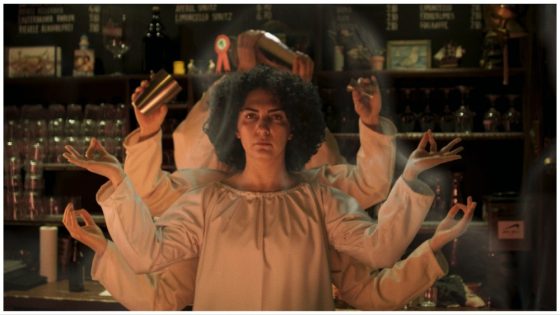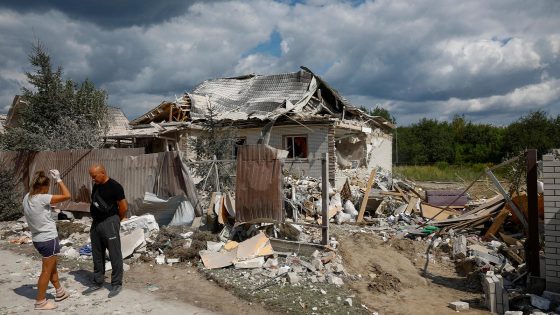Berlinale Forum entry “Shahid,” the debut feature of Iranian-German filmmaker Narges Kalhor, has been picked up by Prague-based doc specialist Filmotor ahead of its premiere at Swiss documentary festival Visions du Réel, where it is competing in the more experimental Burning Lights section.
Described by Kalhor as a collective work between herself and other artists, including a costume artist and a painter from Iran, a German music composer and a choreographer from Berlin, “Shahid” shifts playfully between genres, challenging conventional filmmaking rules.
Set in present-day Germany, where Kalhor emigrated as a political refugee in 2009, the film focuses on her desire to officially remove the first part of her surname, “Shahid,” which means “martyr” in Farsi and was inherited from her great-grandfather, in an act of feminist resistance to patriarchal structures.
During this process, the actor who plays Kalhor travels back in time and meets her great-grandfather, but she also uncovers the true origins behind the name, which, it turns out, was chosen by her great-grandmother when her husband was killed.
As Kalhor realizes – on screen, during one of several scenes where she deliberately breaks down the third wall between filmmaker and viewer – that she is making the wrong film, she also comes to the conclusion that she knows nothing about this great-grandmother.
“That’s the end of the dramaturgy,” Kalhor tells Variety. “In this movie, we have no space for the great-grandmother – she tells me this through AI animation. She says: ‘All you talk about in this movie are the men and your great-grandfather, but let me just explain my story,’” says Kalhor, referring to a scene where the animated figure of her great-grandmother addresses her directly.
“But we don’t know anything about her – just that she was Kurdish and changed her last name: I can’t make a movie about her because history is written by men about men,” adds Kalhor.
While never taking itself too seriously, the film successfully addresses a myriad of questions on patriarchy, diversity and narratives shaped by male perspectives. Asked whether her intention was to make a feminist movie, she replies: “I hope so. I really believe that the kind of cinema we learn is from men.
“I was a student of Abbas Kiarostami; here [in Germany] I learnt from Michael Haneke, I have learnt from perfect filmmakers, all of them men. With ‘Shahid,’ I want to write a new kind of feminist movie that breaks the rules. It’s not just about her [my great-grandmother] but about all of us. We all have a surname, and it has a history. But I, as a woman, want to change it, to rewrite it.”
Kalhor says she has never returned to Iran since leaving in 2009, when she applied for asylum while visiting the Nuremberg International Human Rights Film Festival with her film school short “Die Egge.”
The daughter of a senior cultural advisor of the then Iranian president Mahmoud Ahmadinejad, her case attracted international media attention as she was granted asylum after just a few months, whereas other refugees, including the actors who play herself and her great-grandfather in the film, had to wait several years.
Kalhor addresses what she describes as Germany’s “refugee hierarchy” in the film, in another scene where the actors are supposedly recorded criticizing her behind her back between scenes, calling her a Tehran “rich kid.”
“I was granted asylum in just three months because of my last name. The other Iranian guys – the real victims of the Iranian regime – stayed for years without papers, that’s the difference between us,” she tells Variety.
“And for me, it was important to reflect this in my movie, because if I don’t criticize myself, it is not fair: There are VIPs like me, others have to wait for years, and others still are sent back to their countries.”
While “Shahid” is her debut feature, it does not mark Kalhor’s first visit to Visions du Réel, where she already presented her shorts “In the Name of Scheherazade” in 2019 and “Sensitive Content” last year.
The film has its international premiere in Nyon on April 14.
The festival runs until April 21.
Source Agencies



